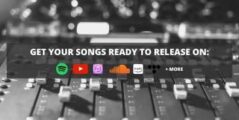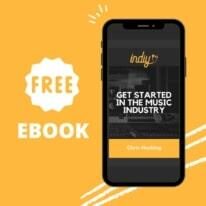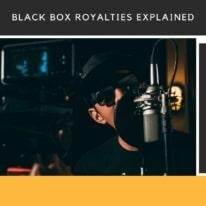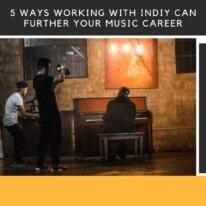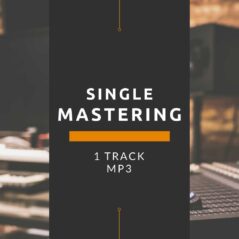Performing Rights Organisations 101: All About PRO’s
Andrea
What are Performing Rights Organisations & How Can I Collect Music Royalties from them?
How do Performing Rights Organisations Collect & Pay Royalties to Songwriters?
How can you collect your royalties from a Performing Rights Organisation?
And Which Performing Rights Organisation should you join?
There are many questions surrounding PRO's (Performing Rights Organisations)...
All of which will be answered for you if you keep reading…
So first we’ll begin by explaining what exactly is a Performing Rights Organisation? And what do they do?
Performing Rights Organisations (also known as PRO’s) help with collecting your music performance royalties.
They go out to companies who play live music and issue them blanket licenses.
A blanket license gives that company the right to play any music which exists in the catalogue of that particular Performance Rights Organization.
For example, if a radio station is issued a blanket license by any individual PRO company that exists today, that license then allows that radio station to play the songs of anyone that has a membership with that specific PRO.
The licensing fees that entities pay vary depending on a number of factors, like the size of the business, how much music they use, and the size of their audiences.
There are many types of music royalties that you can earn with your music.
PRO’s unfortunately only focus on one type, so they aren't a one-stop-shop solution to collecting all of your royalties that you may be owed, only a publishing administrator can do this for you.
But we’ll do our best to help you out and explain some of the ins and outs.
Performing Rights Organisations ensure that rights-holders are paid their fair share of public performance royalties.
They do this by issuing licenses to various establishments and companies and then tracking where and how often the songs of their affiliates are performed at public venues.
So a songwriter has the right to be paid when their music is performed publicly.
But where do these royalties come from?
And how does the money from a song playing on the TV or radio end up in the songwriter’s pocket?
First of all, performance rights royalties are generated from the performance, broadcasting or streaming of music compositions.
Instead of trying to take on this job yourself, as a songwriter or artist, you can turn to a Performance Rights Organization.
You should register every song or composition you make into whichever PRO database you choose to be a member of.
So how can you earn a performance royalty?
Well, there are a few ways…
- The first is to play your music live in a venue. As an individual artist, musician or a band you must report your own live performances of your own original music.
- The second way is if your music is played over the sound system at a shop or played in a bar or club.
- Another way is if your song is played on the radio - we’re not talking about internet radio but terrestrial radio which are your AM/FM stations. These are the big radio stations being broadcast all over the country.
- You can earn a performance royalty if your song is broadcast on television…
- If your song is screened in a movie theatre…
- If your song is streamed online…
One of the main ways that Performance Rights Organisations determine royalties is through radio play.
Generally, radio play is what they look at to determine your royalty amount but essentially any time a composition is played in any one of the above-mentioned ways, the owner of that song’s copyright receives a payment, so provided you own the rights to the song, you should receive payment.
However, each Performing Rights Organisation has its own various methods of calculating your royalty.
What it boils down to is how much of a percentage of time that your song is played for, in comparison to all radio play, and then they determine the royalty for you, and eventually the result is them paying out to you with a big fat cheque!
In the USA, performance rights royalties are paid out to songwriters and publishers every quarter.
One really important thing to know about PRO's is this:
Whatever royalty you earn, they also pay it out to the publisher and to the songwriter.
So in addition to this royalty that you’ve been learning about this whole time…There are two sub royalties within that!
There's the publisher's royalty and the songwriting royalty.
Songwriters and publishers apply for memberships to Performance Rights Organisations separately.
Songwriters need only have a membership with one organization.
Whereas publishers need memberships with each of the organizations of their songwriters so that they can manage each of their works.
When a publisher and a songwriter join a PRO, they each are awarded 50% for any of the songs registered.
That means that when royalties are collected, the organization pays each person/business directly; paying each of them half.
Once registered with a Performance Rights Organisation, they will automatically begin distributing royalties to the publisher and the songwriter so it’s something you don't actually have to worry about.
The exception to the rule is if you are a DIY artist and you consider yourself self-published then you could potentially be missing out by not collecting what you’re rightfully owed…
The publishing part of the royalty.
In this example, what you must do is create a publishing entity for your music.
If you haven't created a publishing entity for yourself then you won’t be collecting the publishing royalties that the PRO's payout automatically at the same time for equivalent radio play.
Basically, as a songwriter, if you haven’t signed a publishing deal with a publisher, then you can act as your own publisher and you should register two separate accounts with a PRO, one as a songwriter and one as a publisher.
If you want to learn how to become a music publisher just watch the video below:
If there are multiple songwriters and/or contributors to any one song, the Performing Rights Organisations allows the main user to enter credits for multiple people and also to assign percentages to each songwriter.
That data is then used to determine what percentage of share of royalties should be distributed to each member.
All artists involved in writing or producing a song should agree upon the percentage to each party, before registering the song.
It’s a good idea to also keep a copy of that agreement in writing as a split sheet.
Okay so now let's cover which PRO is the best? Well, really that part is up to you to decide…here’s a little info on some of the bigger Performing Rights Organisations out there to help you decide...
There’s BMI (which stands for Broadcast Music Incorporated) and ASCAP (The American Society of Composers, Authors, and Publishers), both of which are nonprofit and regulated organizations and then there’s another one called SESAC which is a for-profit PRO and is not regulated.
ASCAP was created by a bunch of composers who rightly decided that they wanted to collect their royalties and so they were formed.
They were extremely successful in lobbying against the radio stations so much so that the radio stations protested by only playing public domain music...
Now the radio stations could only remain for so long playing only public domain music because the listener base dropped so low that it started to have a huge impact on selling advertisements on the radio and in response to that radio stations formed the organization called BMI.
Both BMI & ASCAP collect royalties and pay them out to publishers and artists, and they are both governed by the courts so they cannot manipulate or change the royalty amount that they payout which is what is meant by the term 'regulated'.
SESAC is the 2nd oldest PRO in the USA but unfortunately, you can't just sign up for that one. It’s invite-only and to even be considered to be a part of that organization you have to have already made it to the heights of those like Mariah Carey, The Faint, Rapture or Adele.
You can find out more about all three Performing Rights Organisations by clicking here.
In most cases inevitably and unfortunately there are plays that are not captured by the Performance Rights Groups.
So as an independent artist it’s your job to keep on top of that.
Good Luck on your Music Journey✌️
DO YOU MAKE MUSIC? THE INDIY MISSION
Indiy exists to help people create great music!
Did you know 40 thousand songs are uploaded to Spotify every day!
We want to hear about what you do, what makes you special and share it with the world!
Submit to be interviewed for Indiy Spotlight, its 100% FREE Just click here for your music interview
If you are working on new material, we have partnered with Audio Mastering to offer mastering on your next release from just £2 per song (approx $2.75 USD) - Check the offer out here
Search all articles
Andrea
Andrea graduated from Roehampton University and The BRIT School, whose globally recognized alumni include Adele, Katy B, Ella Eyre, FKA Twigs, Jessie J, Leona Lewis, Katie Melua, Kate Nash and the Rizzle Kicks. She takes her love of the arts and entertainment industry to provide useful information to upcoming musicians, helping them navigate the industry and avoid making costly mistakes. She actively mentors our current contributors. Andrea has qualifications in Content Marketing and also manages our collaborative playlists for independent artists
Follow Indiy





